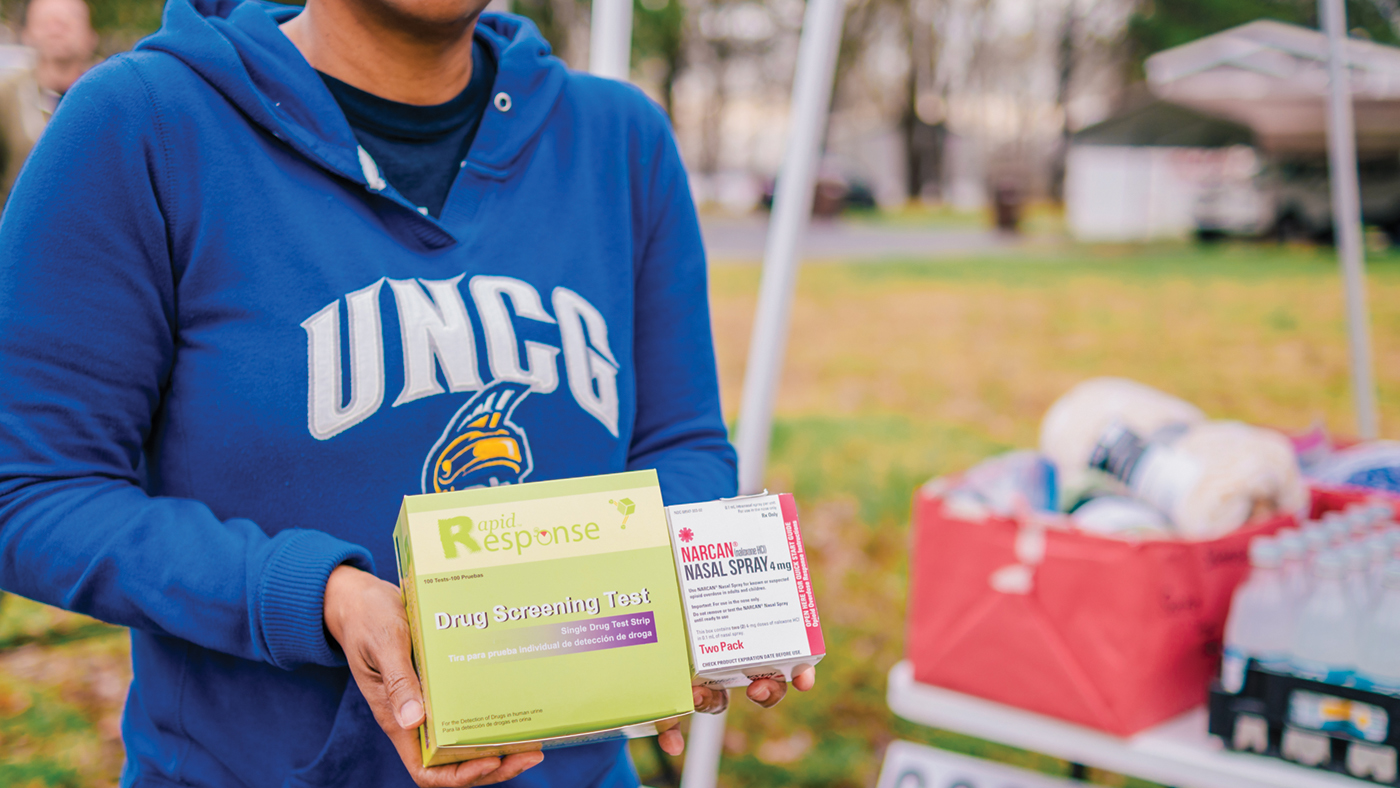Update on May 22, 2023: GCSTOP has received the National Association of Counties (NACO) award in the Risk and Emergency Management category. “This shows the power of collaboration and the strong relationship between Guilford County and UNCG,” said Jim Albright, ES director, Emergency Services, Guilford County Government.
A woman drove into a Walgreens parking lot in High Point, parked, and walked over to a group of social work students.
“Hey, how’s your car doing?” asked Marella Farrington, a student interning with GCSTOP.
The two talked for a moment, before the woman got the narcotic injection supplies she came for and left.

This exchange of pleasantries between the women may not seem like much, but it is important to the participants of GCSTOP, the Guilford County Solution To The Opioid Problem. A partnership program between UNCG and Guilford County that is focused on harm reduction, it includes supplying participants with naloxone to reverse an opioid overdose, providing clean syringes, distributing safe supplies for injections, handing out condoms, and passing out food and clothing. Its primary purpose is to reduce the number of overdose deaths in Guilford County.
“It is not enabling people. We’re in the right place at the right time,” said Farrington. “We extend someone’s life.”
Primarily funded by the county, it’s operated mainly by UNCG. Student interns hand out supplies in High Point and Greensboro. There’s also a phone number people can call.

“The team is talented at listening to what people need and want,” said Dr. Mike Thull ’04, GCSTOP clinical program director and UNCG assistant professor of social work.
At one of GCSTOP’s outreach events, a patient thought he’d missed his treatment clinic appointment. Farrington followed up with him, verifying he could still go.
For people who may not be ready to make a change, the GCSTOP interns provide support without judgment. Master’s student Oliver Sugiyama stressed the value of the syringe exchange program, in which participants can get clean needles to stanch the spread of blood-borne disease.

Some of the interns joined the program for personal reasons. Two lost family members to overdoses. Others saw it as a great opportunity to learn about a different type of social work.
Nigel “Shabazz” Moffitt-Shabazz was recently accepted into the joint master’s program. He is now focused on youth who may need assistance.
“It seems like everyone turns away from this population. Just look at them as a person. They’re trying to make it another day,” he said.
By Sarah Newell
Photography by Sean Norona ’12
Read more about alumni helping to fight the opioid epidemic.
